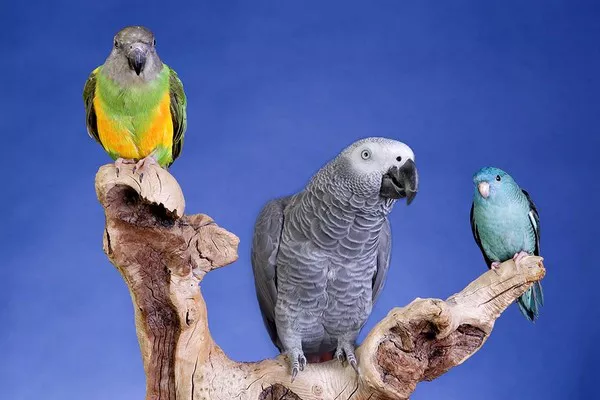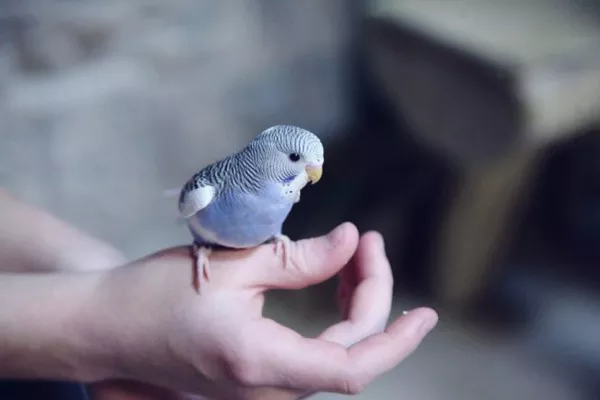The African Grey Parrot, known for its exceptional intelligence and remarkable ability to mimic speech, is one of the most popular companion birds worldwide. As bird enthusiasts, it is essential to understand the lifespan of these captivating avian companions and the factors that can influence their longevity. In this article, we will explore the average lifespan of an African Grey Parrot, the key factors affecting their lifespan, and essential tips for ensuring their well-being and longevity.
Average Lifespan of an African Grey Parrot
The African Grey Parrot, scientifically known as Psittacus erithacus, is divided into two subspecies: the Congo African Grey (Psittacus erithacus erithacus) and the Timneh African Grey (Psittacus erithacus timneh). Both subspecies are highly intelligent, social, and make excellent companions for dedicated bird owners.
In the wild, African Grey Parrots have an average lifespan of approximately 30 to 40 years. However, with proper care and attention in captivity, they can live much longer, sometimes reaching 50 to 70 years or more.
Factors Influencing the Lifespan of African Grey Parrots
Several factors can impact the lifespan of African Grey Parrots, and as responsible bird owners, it is essential to consider these factors to ensure their well-being and longevity.
1. Diet and Nutrition: Providing a balanced and nutritious diet is paramount to the health and longevity of African Grey Parrots. A diet rich in a variety of fruits, vegetables, high-quality pellets, and occasional treats will help prevent nutritional deficiencies and associated health issues.
2. Environment and Enrichment: A stimulating and enriching environment is essential for the mental and emotional well-being of African Grey Parrots. Providing toys, perches, and opportunities for social interaction and mental stimulation can contribute to their overall happiness and longevity.
3. Veterinary Care: Regular visits to an experienced avian veterinarian are crucial for monitoring your parrot’s health and detecting any potential health issues early on.
4. Exercise: Regular physical activity and exercise are essential to prevent obesity and maintain muscle tone. Ensure your African Grey has enough space for wing stretching and flight (if wings are not clipped) and encourage active playtime.
5. Emotional Well-being: African Grey Parrots are highly social and intelligent birds. They thrive on social interaction with their human companions and may suffer from loneliness if left alone for extended periods. Spending quality time with your parrot and providing mental stimulation are vital for their emotional well-being and longevity.
6. Avoid Toxins: Keep your African Grey Parrot away from household toxins, such as fumes from non-stick cookware, tobacco smoke, and harmful chemicals. These can have adverse effects on their respiratory system and overall health.
7. Stress Management: Minimize stressful situations and changes in your parrot’s environment, as stress can negatively impact their health and longevity.
Tips for Ensuring Longevity and Well-being
To ensure your African Grey Parrot lives a long and healthy life, consider the following tips:
1. Proper Diet: Offer a varied and balanced diet consisting of high-quality pellets, fresh fruits, vegetables, nuts, and seeds in moderation.
2. Regular Vet Check-ups: Schedule regular check-ups with an avian veterinarian to monitor your parrot’s health and address any concerns promptly.
3. Social Interaction: Spend quality time with your African Grey, engaging in play, training, and providing mental stimulation.
4. Environmental Enrichment: Create a stimulating environment with toys, puzzles, and perches to keep your parrot mentally and physically active.
5. Exercise: Encourage physical activity through flight or playtime to maintain muscle strength and prevent obesity.
6. Mental Stimulation: Teach your African Grey new tricks, introduce puzzle toys, and rotate their toys regularly to keep their minds engaged.
7. Avoiding Hazards: Be vigilant about potential hazards in your home, such as toxic substances and open windows or doors that could allow your parrot to escape.
Conclusion
The African Grey Parrot’s average lifespan ranges from 30 to 40 years in the wild but can extend to 50 to 70 years or more in captivity with proper care. As intelligent and social beings, they require a stimulating environment, a balanced diet, regular veterinary check-ups, and plenty of social interaction to ensure their well-being and longevity. By understanding the factors that influence their lifespan and following essential care tips, you can provide your African Grey Parrot with a happy, healthy, and enriched life as a cherished avian companion. Remember that each parrot is unique, and tailoring their care to their individual needs will contribute to a fulfilling and long-lasting bond between you and your African Grey.
Related Topics:


























